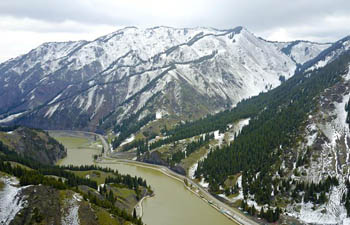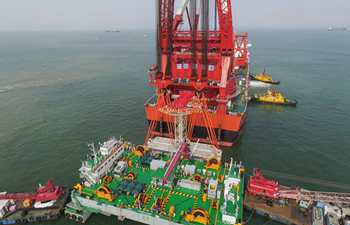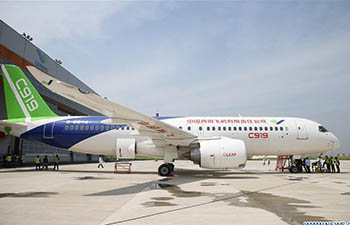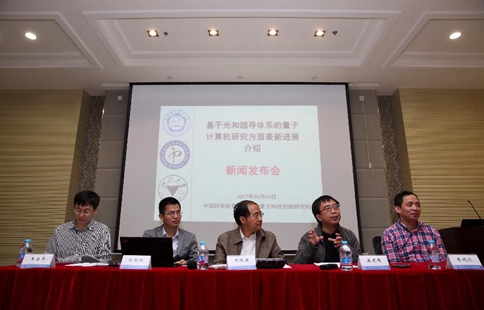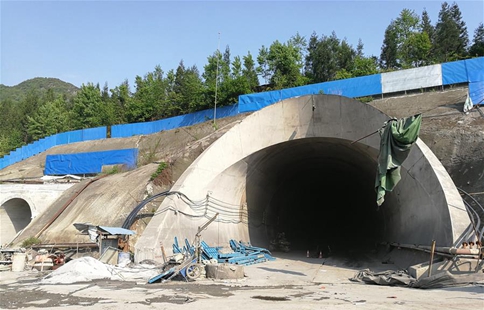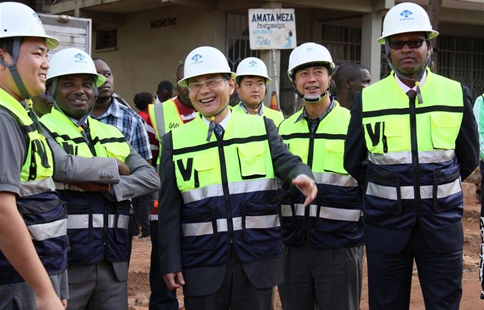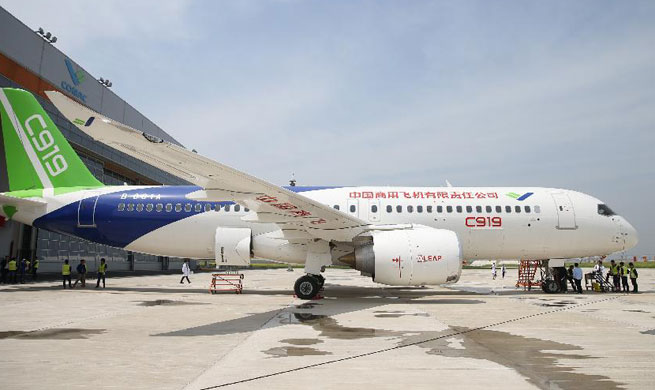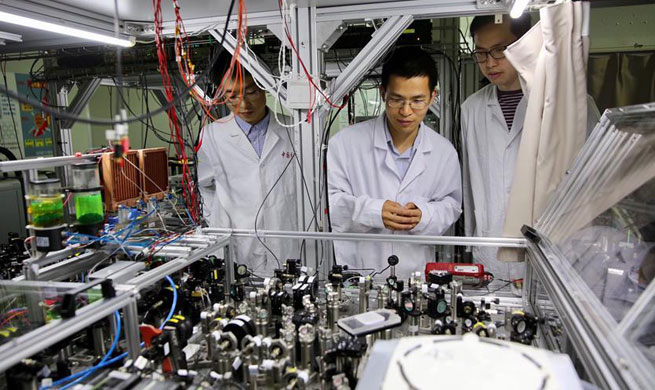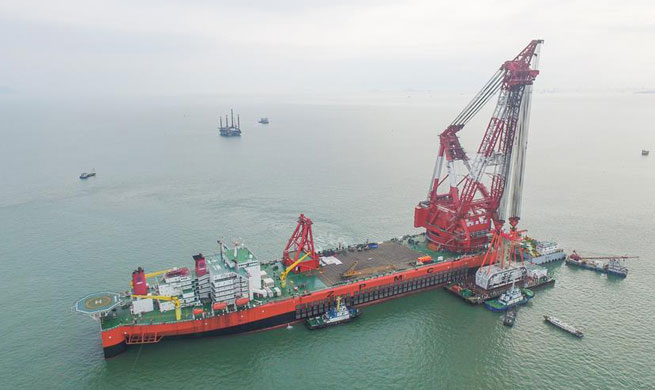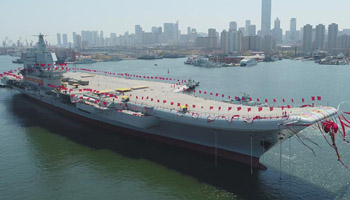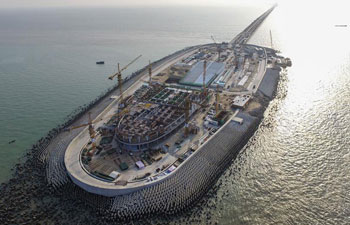by Hummam Sheikh Ali
DAMASCUS, May 3 (Xinhua) -- A new round of the intra-Syrian talks kicked off in the Kazakh capital of Astana on Wednesday, with a fresh Russian proposal for creating "de-escalation zones" in Syria being under discussion.
Kazakh Foreign Ministry officials said the participants will discuss a Russian proposal of creating four or more "de-escalation zones," or in other words safe zones in the war-torn country.
According to leaks by Russian media outlets on the details of the proposal, the four zones will be flanked with safety lines along with checkpoints and monitoring centers, as Russia, Turkey and Iran could be sending armed factions for monitoring the cease-fire.
The safety lines and checkpoints should allow the entry of unarmed civilians, and facilitate the humanitarian delivery as well as monitoring the cease-fire as these areas will be created to avert confrontation between the warring parties in Syria.
According to Russian reports, those areas will be created in the northwestern province of Idlib, the central city of Homs, and the Eastern Ghouta countryside east of capital Damascus.
Three countries are called the guarantor states, with Russia and Iran on the side of the Syria government, while Turkey on the side of the rebels.
The document emphasizes the necessity to create conditions to drive out the Islamic State (IS) and the al-Qaida-linked Nusra Front from de-escalation zones with the help of the Syrian opposition.
The guarantor states would have to create conditions in de-escalation zones, in which the warring sides would allow a safe return of refugees and internally displaced persons, according to the leaked document.
There was no word from Damascus regarding the Russian proposal, which is clear to be a real deal, particularly after the assertion of the Kazakh Foreign Ministry that a Russian proposal for creating four de-escalation zones are being discussed.
Observers believe that the remarks of the Kazakh Foreign Ministry are the first official confirmation, adding that if the guarantor countries agreed to the proposal, the Syrian government forces and the rebels will have to agree.
Meanwhile, Astana talks, which are largely talks between the actual warring parties in Syria, began on Wednesday with participation of 19 rebel representatives.
For his part, Yahya Aridi, the advisor of the opposition's Higher Negotiation Committee (HNC), said his group is studying the Russian proposals, trying to understand the essence of the new proposal.
In previous times, when the safe zones proposed by Turkey and most recently the United States, the Syrian government didn't agree at all with the idea, with some analysts saying the move could constitute to later dividing the country.
In January this year, Russian Foreign Minister Sergey Lavrov said his country may support the U.S. initiative to establish so-called "safe zones" for refugees in Syria.
"If this is about the people who were forced to leave their homes by the conflict, ... getting their basic needs covered, ... then I think that the idea to create areas within Syria for those internally displaced could be discussed with the UN's High Commissioner for Refugees and other organizations," he said, though promising the proposal would require negotiations with Damascus.
Following Lavrov's remarks, the Syrian government said that any attempt to install safe zones without its consent would constitute a "violation of Syria's sovereignty."
In an interview with the American Yahoo News network February, President Bashar al-Assad rejected the creation of safe zones in Syria.
"Safe zones in Syria can happen when there is peace and security, where there is no more support to the terrorists by neighboring or Western countries, then there can be a natural safe zone, which is our country."
He further said that restoring stability to make Syria safe again is less costly, and more practical than creating safe zones.
It's still unclear how this proposal will find its way to implementation or acceptance by the warring sides in Syria, given the clear stance of the Syrian government.




